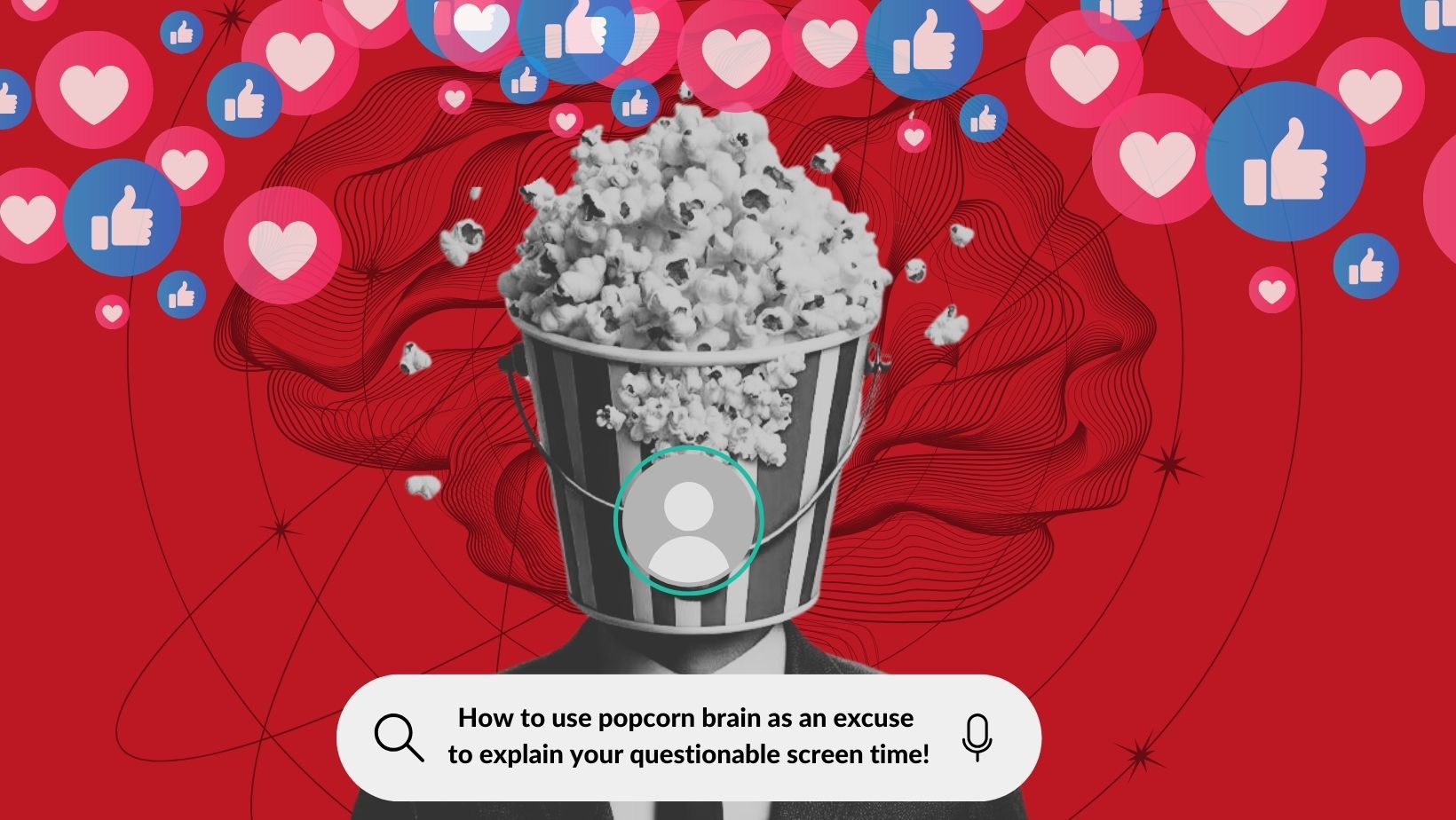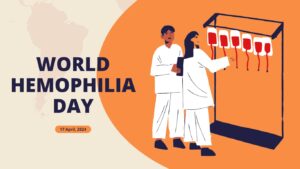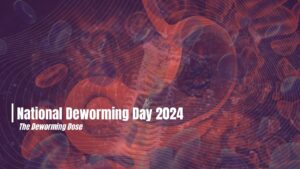Hi! Now that I have your attention, please don’t mind the title, it was intentional.
Let me get this straight: I do not endorse or encourage breaking the “stringent” rules of limited screen time that you set for yourself.
Popcorn kernels popping away inside of my brain…
“Wait, what were we talking about? I’m sorry I wasn’t paying attention, can you repeat that?”
Popcorn brain is essentially the effect of excessive use of social media and the constant multitasking, on our mental state. With the advent of social media (all thanks to the COVID-19 Pandemic), technology has had a major impact on the way our brain functions.
The other day, I was casually bombarding my group chat with multiple reels (RIP screen time) and we came across a reel that may have pointed towards ADHD but did imply topics switching fast during a conversation- chaotically fast. That led to a 3 am philosophical discussion on it, which ended not very fruitful. However, throughout our discussion, we strayed from the topic at hand and somehow ended it with who won what at the Oscars.
What I’m trying to say is that technology and the social media urge to ruin one’s screen time for entertainment, has reduced our attention span, and ability to focus deeply and has raised our stress levels way beyond what one can handle.
Popcorn brain, is a Gen-Z term and not a medical term), describes the impact of an obsessive and copious use of social media on our fragmenting mental state.
A Nature Communications 2019 study talks about people; attention spans getting increasingly shorter, which may be due to perennially consuming content on IG, X and YT.
Do you find yourself constantly checking your phone, unable to concentrate for long periods, or struggling to complete tasks you once breezed through? If so, bad news- you’re suffering from ‘Popcorn Brain’.
Introduced by University of Washington researcher David Levy in 2011, “popcorn brain” describes a state marked by diminished attention and focus, causing thoughts to jump erratically. You’ve made popcorn at home, in your microwave or cooker, right? You must be familiar with the popping kernels. Well, that’s what your brain does in this phenomenon…
Despite this not being a diagnosable medical condition, it is a well-recognized phenomenon, which is majorly caused by the excessive use of the internet and social media.
There have been several studies that point onwards a global decline in attention span over the last 20 years, with the COVID-19 Pandemic being the cherry on top.
Scientifically Speaking…
“Aargh there’s so much to do and so little time, I feel like I’ll burst”
— hmm, your brain
I have this bad habit of checking my phone every time I hear the tdddinggg, disappointed it’s only Zomato nailing their marketing skills and not the text I was waiting for. But it doesn’t stop there, this then creates urgency as when my phone tddddinggsss, I must check it. Sometimes, it overwhelms me and makes me think if I check my phone, I will not leave it and will not have my tasks done.
Yes, Popcorn brain can play games with you, “mind games” if I may–and how can you fix this? SCREEN TIME MANAGEMENT..?
“Popcorn brain” describes the cognitive fallout of constant multitasking, particularly exacerbated by the widespread use of social media. According to experts, the influx of information and stimuli from various sources can lead to a fragmented mental state. Social media’s influence on our brains is profound, resulting in shorter attention spans and increased stress and anxiety due to constant comparison and pressure to maintain an online presence.
This phenomenon can be attributed to dopamine, a neurotransmitter responsible for pleasure and motivation. Social media offers moments of euphoria through instant gratification. The constant stimulation conditions our brains to crave rapid information flow, making it difficult to adapt to slower-paced real-life experiences. This constant need for attention and frequent multitasking can lead to mental restlessness, hindering sustained focus.
Experts also point out that social media platforms are designed to keep users engaged with customized content and notifications tailored to their interests. Reports indicate a staggering 4.9 billion global social media users, projected to rise to 5.85 billion by 2027. Notably, the average time spent on social media increased to 2 hours and 41 minutes in 2020, with Gen Z leading at 4.5 hours daily, surpassing millennials at 3.8 hours.
Scary numbers? Well, you should be scared. Mums were right when they said “Yeh phone hi problem hai”
How is this affecting our brains?
A survey conducted last year revealed that 65 per cent of parents express concerns about the negative impact of screen usage on their children’s development. Parents cited behavioural issues such as attention disorders, hyperactivity, and sleep disturbances among their observations.
I think I can effectively attribute my unchecked insomnia to the need to respond to every reel my friends send me…
Diminished attention, which is a major umm symptom? of ‘popcorn brain’, can impede learning and memory formation due to altered neural pathways across brain regions. Excessive social media use, especially at night, further compromises sleep quality, leading to a slew of health issues and increasing susceptibility to stress, anxiety, and depression. Moreover, it can lead to heightened feelings of loneliness, reduced social connectedness, and diminished emotional resilience.
Now I get why I look grumpy when I turn up at work every morning… is that just the work and not my popcorn brain?
A Senior Clinical psychologist may or may not have compared the degrading brains of those affected by popcorn brain to that of the brains of individuals severely dependent on drugs, as it impacts processing your emotions, your attention span and your ability to make and take decisions.
I’m now low-key offended.
How do I know I have a popcorn brain?
Have you noticed that you can no longer read 50 books in one month as you used to before? Have you noticed that you start one task and it ends with you scrolling Instagram (RIP task)? Have you noticed that you have begun dreaming of reel trends? Have you noticed that you are now more stressed than ever? (No, it’s not adulting, age, or anything else you want to gaslight yourself into thinking).
Let’s make it simpler. Here are a few signs that you might be experiencing a popcorn brain:
- You’re always distracted: unable to stay focused due to the constant urge to check notifications.
- You’re unable to concentrate: you struggle to focus on a single task and find your mind wandering off elsewhere
- You always feel overwhelmed: you feel overstimulated when you’re given a few tasks, maybe even talking to people, you’re unable to process all that they say due to an overload of information (essentially). This ultimately stresses you out.
- You constantly seek validation from social media: you seek validation from various social media interactions. For instance, a picture you posted will leave you restless until ALL your followers have either liked or interacted with it at some point. If they don’t like it, that takes on a whole other rain of overthinking. You need the validation to feel more confident, or maybe your internet persona does.
- You’re always busy?: Feeling constantly busy but not getting much done because you’re trying to do too many things at once
How can one fix this (and oneself)?
A friend of mine decided to set a screen-time limit on her phone, as part of her nth number of resolutions to do well in life. As much as I did not believe she could do it, she managed to do it and it makes me proud.
I feel it’s about time that we put the phone down and spend quality time doing things that are meaningful and that are not meaningful to a bunch of people who only see the “forced” side of you on Instagram. Yet, several times simply putting the phone down, may not help most people. For the same, here are a few suggestions to fix that popcorn brain!
-
- A digital detox: Take some time to unplug. Schedule “digital detox” periods to let your brain relax and recharge.
- Set time limits on all your social media apps: Choose specific times in your day when you allow yourself to check social media, instead of constantly dipping in and out.
- Mindfulness: These practices help you focus better and stay present in the moment, calming down that “popcorn brain” feeling. Think of it like mental spring cleaning. Meditation and other mindfulness techniques can help you de-clutter your thoughts and sharpen your focus
- Not multi-tasking: Focus on one task at a time instead of multitasking — even when you’re online. This can help retrain your brain to sustain attention and deepen engagement with activities.
- Set a routine, stick to it: Create a daily schedule with specific time slots for different activities. This helps you stay organized and get more done throughout the day.
- Take breaks, nature breaks if possible: Spending time in nature can help you relax and focus better. Hence take frequent breaks to help refresh your mind a bit and relieve your body of the burnout.
- Stop doomscrolling (not familiar with the term? Another article coming soon!): Instead of constantly checking your phone or computer, choose specific times to read your emails and browse through social media. This helps you avoid getting sucked into the digital world and allows you to focus on other things throughout the day
- Get a hobby or hit the gym?: Instead of constantly staring at your devices, may take up activities that don’t involve the use of phones, TV, iPad, or laptops; such as: reading a book, creating art, and working out. These activities help you relax, stimulate different parts of your brain, and come back feeling refreshed.
So, let’s put down our phones, take a step back, and embrace moments of quiet and calm. By doing so, we can reclaim our mental clarity, productivity, and overall happiness in this digital age. Remember, it’s not about eliminating technology from our lives entirely but finding a healthy balance that allows us to thrive both online and offline.









